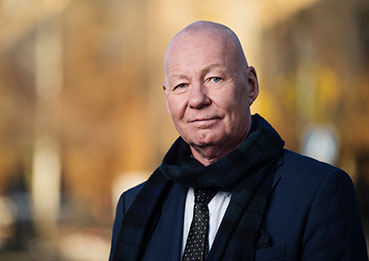This year’s Physics Prize was shared between John J. Hopfield and Geoffrey Hinton for discoveries further back in time that had a major impact on the development of AI, paving the way for the AI that is now increasingly fundamental to scientific work and everyday life.
The AI Commission has also recently presented its roadmap for Sweden, outlining the risks, needs and opportunities it sees for our country. Sweden has the prerequisites, but is at risk of falling behind, and therefore needs to invest heavily in AI in order to secure our position and also to be able to contribute to the long-term development of AI.
At KTH, we have solid experience and a lot of relevant research in this field. Hundreds of researchers are also using AI every day in areas such as energy, transport, health and social planning. AI will affect and change all research and education in a profound way.
To name just a few of the many examples of exciting research with AI at KTH, there are examples such as detecting early signs of infection in babies before it breaks out. Another example is applications in neuroscience and how to track how immune cells in our brains change their shape and respond to environmental signals, even before neurological symptoms appear, such as in Parkinson’s disease.
Efforts must also be made to manage the risks associated with AI. These include the risk of data moving unchecked in global networks in ways we do not want, for example in geopolitical terms. There is also the risk of AI ‘taking over’, a risk that Nobel Laureate Geoffrey Hinton has articulated by saying ‘we have no idea whether we can stay in control’.
However, the solution is not to try to stop development; what is needed is free and independent research that addresses the major issues raised by AI in a responsible and ethically sustainable way. There are, of course, issues of pure technological development, but also issues that have more to do with the use and consequences of AI. As AI in one way or another characterizes science in general and is no longer a separate subject, this is a responsibility that rests on the shoulders of many researchers and a great responsibility for us as a university community.

